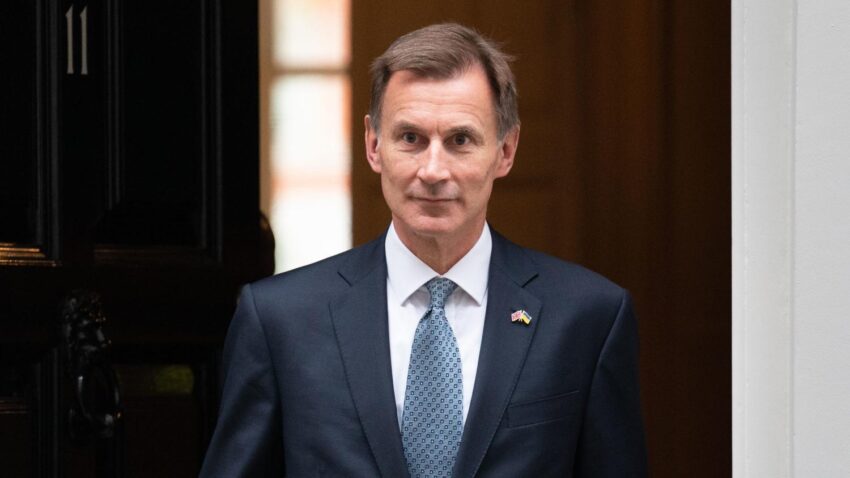
Economists have warned that calls from Conservative MPs for Chancellor Jeremy Hunt to cut taxes after improved borrowing data emerged show “questionable judgement”.
Three backbench Conservatives piled the pressure on, according to the Financial Times, with calls for “personal tax reductions” to “stimulate the economy”.
The pleas came after figures from the Office for National Statistics (ONS) revealed on Tuesday that public sector borrowing for July amounted to £4.3bn – lower than the £6bn forecast by the Office for Budget Responsibility (OBR) in March.
But economists have warned against the move, suggesting the government is only just meeting its own fiscal rules, following months of gloomy news for UK plc.
Former Tory minister Sir John Redwood branded the OBR “ridiculously pessimistic” in its forecasts and called on ministers to take action on taxes and public spending, including by raising the VAT threshold for small firms, in a bid to fire up growth without risking inflation.
Sir Jacob Rees-Mogg, ex-business secretary, echoed his remarks on the OBR’s “continued failure” and said the size of its gap between forecasts and reality created space for tax cuts.
“This would pay for the total abolition of death duties and leave billions to spare – but more importantly it illustrates the mistake of setting policy based on the OBR’s auguries,” he said.
And David Jones, deputy chair of pro-Brexit European Research Group of Conservative MPs, said he thought there was “more fiscal headroom now”, linked to a “greater tax take”.
He urged: “That should be converted into personal tax reductions. The chancellor should also be looking to stimulate the economy by reviewing the rate of corporation tax.”
Aveek Bhattacharya, from the Social Market Foundation (SMF), said: “Rushing to cut taxes in response to the first piece of fiscal good news would show questionable judgement and priorities from the government.
“With inflation remaining stubbornly high, stoking demand through higher borrowing would be bad economic policy. It would also be bad social policy to raise less money through tax whilst NHS waiting lists lengthen, educational institutions are squeezed, and poverty and homelessness are at intolerable levels.”
And Carl Emmerson, of the Institute for Fiscal Studies, said: “Given the proximity of the general election I wouldn’t be surprised to hear talk about and even the possibility of tax cuts. But given the reality of the economic situation, even if they do happen it would not be surprising for bigger tax rises to be implemented once we’re on the other side.”
He added: “The government was only meeting its fiscal rules by the slimmest of margins back in March.
“While it is true that revenues have been stronger than expected since then, borrowing is still much higher than forecast just 18 months ago.”
Borrowing figures for last month were £3.4bn higher than in July 2022, but were also well below the £5bn predicted by economists, according to Reuters polling.
A Treasury spokesperson said: “Driving down inflation is the most effective tax cut we can deliver right now which is why we are sticking to our plan to halve it, rather than making it worse by borrowing money to fund tax cuts.
“We have taken 3m people out of paying tax altogether since 2010 through raising personal thresholds, and the Chancellor has said he wants to lower the tax burden further but sound money must come first.”